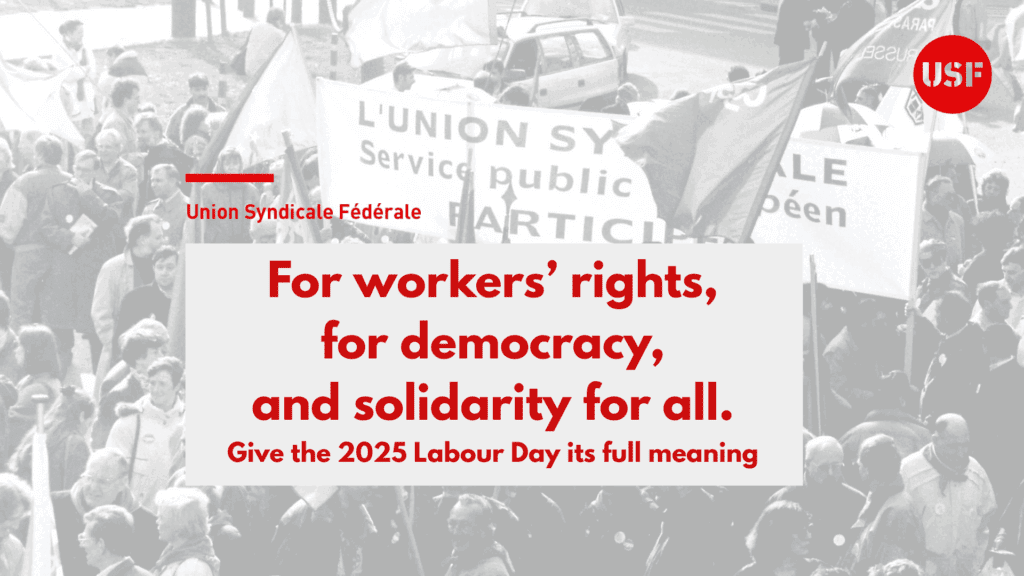Dodgy dealings in a Commission that blocks information and consultation rights
Newsletter 14 March 2018
This week the European Parliament discussed the appointment of Martin Selmayr as Secretary-General of the European Commission. This former head of the Cabinet of Commission President Juncker got the job in a botched nomination process exposed by Jean Quatremer, a Brussels-based journalist for the French newspaper Libération. Günther Oettinger, the European Commissioner responsible for the process faced tough questions from a very critical European Parliament. While parties from the extreme right parties tried to exploit the situation for their own ends, the most serious questions were raised by the Greens, the left and the liberals. MEPs pointed out that the European Commission should be exemplary in its administration and not ignore procedures that are there to prevent nepotism. The European Parliament’s Budgetary Control Committee will now examine the case.
We also have our own case of a Commission that does not respect its rules. Last week (5th March) the European Commission sent a letter informing the social partners in central government administrations that their agreement is effectively not worth the paper it is written on. Two years ago, on 9 March 2016, Employment Commissioner Marianne Thyssen told us that she would treat our agreement as she would all other social partner agreements. She said that the Commission would carry out a proportionate impact assessment. However, this was neither attached to the letter nor was its existence confirmed by our formal request for access to documents relevant to the agreement. There are, indeed, dodgy dealings at the Commission that blocks clearly information and consultation rights…
It took Thyssen two years to come to the conclusion that workers in public administrations do not deserve information and consultation rights underpinned by EU legislation. This is despite the Fitness Check (2013) and the First Phase Consultation (2015) on the information and consultation directives which underlined that this exclusion needed to be addressed. The EU pillar of social rights says that ALL workers in the EU should have information and consultation rights, but the Commissioner denies them to people working in public administrations. She is #lettingworkersdown and we will not let this discrimination rest.
An interesting angle to this is that Selmayr, as head of Juncker’s cabinet, has certainly been involved in obstructing a positive decision, as someone with a reputation for meddling and seeking to be master of the agenda. We do know that Juncker made a gaffe in relation to a social partner agreement in the hairdressing sector when he repeated the line of former Commission President José Manuel Barroso that the EU should not deal with high heels for hairdressers. This was complete nonsense, as the social partner agreement is about improving health and safety for hairdressers and says nothing about high heels. Badly briefed and not capable of admitting the Commission President did not know what he was talking about, I am sure that Selmayr influenced the services of the Secretariat-General to block the hairdressers agreement. And as they had no real reason to block that one, they had to block the central government agreement as well, thereby giving them the space to set themselves up as prosecutor and judge at the same time. Too bad that the Treaty had to be violated because who would dare to challenge them? It might take years before internal documents underpinning my reading will become available. We do know that these violations of the Commission’s own Code of Good Administrative Behaviour are extremely demotivating for workers in public administrations, as we have been told by Commission staff and their union representatives.
As many MEPs have underlined, these stories reflect very negatively on the EU. It is not just that euro-sceptics and the extreme-right take advantage of them to demean the incredible work of dedicated men and women serving in the public interest. They also undermine the position of the EU when faced with corrupt governments that do not respect the rule of law in the EU, our immediate neighbourhood and beyond. EPSU has recently sent letters of protest to ministers in Macedonia and Ukraine asking them to stop interfering in union affairs. Corruption and the lack of the rule of law cause great difficulties for our affiliates. Similarly in Turkey, where we stand with the Turkish unions for free speech, we condemn the sentence handed down to journalist Can Dündar for reporting that Turkey had delivered weapons to jihadis. Journalism is not espionage. For such protests it is key that we have a European Commission that respects its own rules.
Elsewhere, unions continue to mobilise as #ourpayrise campaign goes on. We sent solidarity greetings to the French unions representing workers in elderly care who organize another nationwide strike on 15th March. They have had enough of staff shortages leading to stress and burn-out. Care workers deserve respect and a decent pay rise. And that is also what Danish public service workers want now that the economy is doing better. But employers continue to offer low pay increases. There now is a phase of arbitration after which strikes will take place. The unions announced targeted action involving 10% of the workforce but the employers reacted with a threat to lockout of 90% of state and half of municipal workers. This is an extremely hostile reaction affecting workers, their families and the communities. We will be asking for your solidarity before a national rally of the Danish unions on 22 March.
Meanwhile, our German colleagues of Ver.di are in the second round of negotiations. They are also seeking a pay rise for workers in public services and plan warning strikes later this month to support their negotiations. Behind all these battles, and others in Slovenia and Portugal, for example, are the policies of austerity, or as it is now called “resilience.” I wish all our colleagues successful campaigns. Together we can do more.




